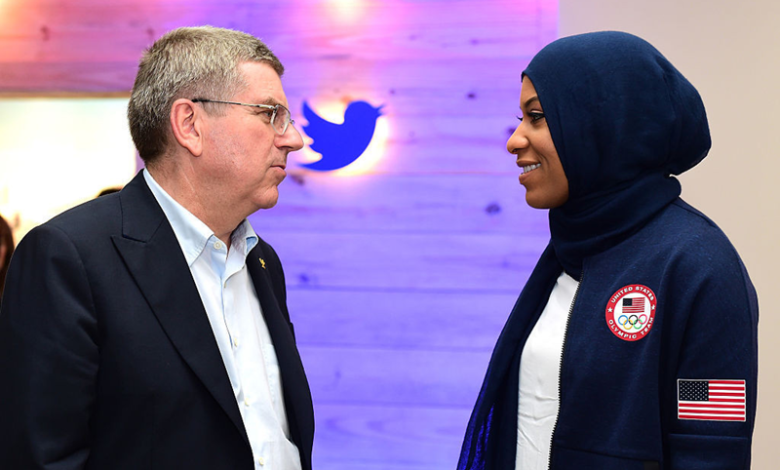Controversy Over French Hijab Ban Casts Shadow on ‘Inclusivity’ Of Paris 2024 Olympics

News Mania Desk/Agnibeena Ghosh/25th July 2024
As the Paris 2024 Olympics approach, a significant controversy has emerged surrounding the participation of athletes who wear hijabs. French sprinter Sounkamba Sylla, set to compete in the 400m women’s and mixed relay teams, may face exclusion from the opening ceremony due to France’s prohibition on headscarves for athletes. This policy has drawn criticism from various quarters, with human rights organizations and activists condemning it as discriminatory and contrary to the Olympic ideals of inclusivity and gender equality.
In 2023, Moroccan athlete Nouhaila Benzina made headlines worldwide when she became the first woman to participate in a FIFA World Cup while wearing a hijab. Her groundbreaking appearance was widely celebrated as a step forward in sports inclusivity. However, the French ban on headscarves, particularly during the Olympics, highlights a stark contrast. Amnesty International has criticized this policy as a “discriminatory double standard” that undermines Paris 2024’s claim of being the first gender-equal Olympics.
Shireen Ahmed, an activist and senior contributor at CBC Sports, argues that the hijab ban is a form of “deliberate exclusion” targeting women of color who choose to wear the headscarf. Ahmed contends that such policies deny these women their bodily autonomy and perpetuate harmful stereotypes about religious dress. She points out that forcing women to remove their hijabs is as oppressive as mandating them to wear it, thus violating the Olympic Charter, which emphasizes non-discrimination based on religion, race, or culture.
David Lappartient, president of the French Olympic Committee, has defended the ban by citing France’s secular principles, which separate religion from the state. He acknowledged the controversy and expressed hope that a compromise could be reached to allow athletes like Sylla to participate in the opening ceremony while adhering to French secular requirements. The International Olympic Committee (IOC) has stated that athletes are free to wear hijabs as long as they comply with their sport’s regulations, leaving the matter to be decided by individual sports federations.
Critics, including human rights groups, argue that France’s secularism is applied unevenly. They note that while the ban targets religious symbols, other forms of personal expression, such as tattoos and crosses, are permitted. The French ban on hijabs in sports dates back to January 2022, when the Senate voted to prohibit “ostensible religious symbols” in competitions. This decision followed a controversial amendment by the right-wing party Les Republicains, which argued that hijabs could compromise athlete safety despite the availability of sports-specific headscarves.
The roots of France’s secularism, or “laïcité,” stretch back to the early 20th century, enshrined in law as a principle of the French Republic. While this principle is deeply embedded in French identity, its application has sparked debates about Islamophobia and xenophobia, particularly in the context of recent terrorist attacks and rising far-right sentiments.
Activists like Ahmed and former athletes such as Lina Boussaha, who moved to Saudi Arabia to continue her football career while wearing a hijab, argue that such bans have far-reaching negative impacts. They cite cases where Muslim women are either forced to leave their home countries to pursue sports or abandon their athletic dreams altogether. This exclusionary policy, they argue, not only affects individual athletes but also deters young Muslim girls from participating in sports, perpetuating a cycle of marginalization.
The debate over the hijab ban at the Paris Olympics reflects broader tensions between national identity and individual rights. As the Games draw nearer, the international community watches closely to see how France will navigate this contentious issue while upholding its secular values and Olympic commitments.






